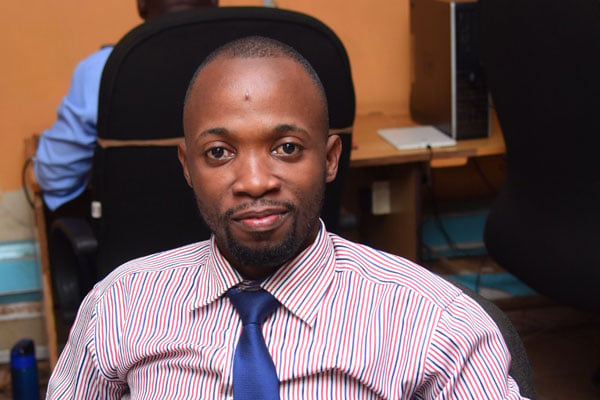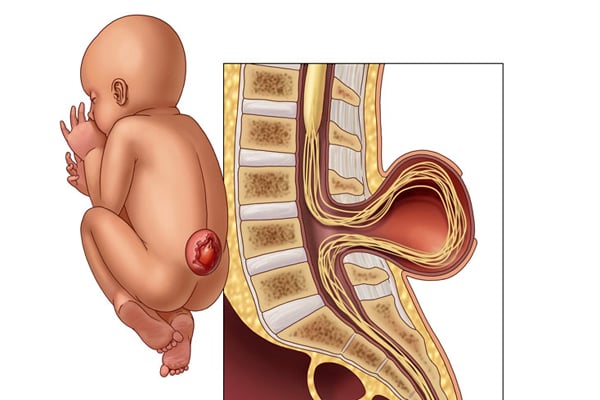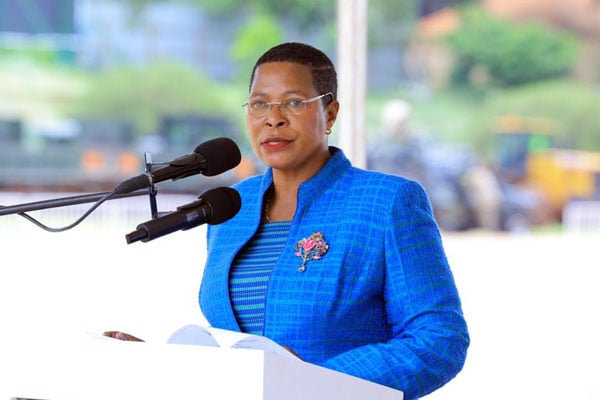Experts task govt on medical access for persons with Spina bifida

The available government statistics indicate that out of the 8,000 people affected by Spina bifida and hydrocephalus per year, only 1,000 can have access to the required medical attention such as surgeries and diagnostics.
What you need to know:
- The available government statistics indicate that out of the 8,000 people affected by Spina bifida and hydrocephalus per year, only 1,000 can have access to the required medical attention such as surgeries and diagnostics.
Experts, care takers and leaders of persons living with Spina bifida and hydrocephalus have asked government to invest more in health services to ensure easy accessibility to medical services needed by the affected individuals.
Addressing the media in Kampala on Tuesday, Ms Hellen Asamo, the state minister for disability affairs revealed that whereas the country registers over 8,000 people with Spina bifida and hydrocephalus every year, there are less than five hospitals with the capacity of providing the required medical services which leaves majority of the patients unattended to.
“Many individuals with Spina bifida and hydrocephalus in Uganda face difficulties in accessing essential healthcare services, such as qualified medical professionals, diagnostics, surgeries, rehabilitative therapies, and assistive devices due to inadequate specialised care centers in the country,” Ms Asamo said.
The available government statistics indicate that out of the 8,000 people affected by Spina bifida and hydrocephalus per year, only 1,000 can have access to the required medical attention such as surgeries and diagnostics.
Speaking at the same presser, Ms Ruth Nalugya, the executive director of Spina bifida and hydrocephalus Association of Uganda (SHAU) urged government to reconsider the 18 per cent tax that was imposed on diapers which has exacerbated the daily expenditures of cares takers for persons living with the condition.
“A lot is still lacking, for example the Parliament of Uganda levied an 18 percent tax on pampers and our children must have pampers on a daily basis but right now the prices are exorbitant. It is our prayer that the government reverses it,” she said.
“Our children also have bladder incontinence, we therefore use a drug called Oxybutynin to enable the bladder to contain some reasonable amount of urine, but that drug is not available in Uganda, we only rely on smaller donations. We request that this drug is included on the list of primary drugs in Uganda,” she added.
The remarks were made ahead of the World Spina bifida and hydrocephalus Day (October 25), marked under the theme; "Accessibility for All: Empowering Lives, Embracing Differences"
According to Ms Asamo, this year's theme aligns strongly with the Sustainable Development Goals (SDGs) set by the United Nations, particularly SDG 4 (Quality Education), SDG 3 (Good Health and Well-being) as well as SDG 10, which aims at reducing inequalities.
She further noted that the government and public are to use the day to raise awareness about Spina bifida and hydrocephalus conditions to eliminate social stigma and discrimination resulting from lack of awareness and understanding about the condition.
The planned activities for the commemoration of World Spina bifida and hydrocephalus Day are; panel discussion with experts, healthcare providers, affected individuals, and their families to educate attendees about Spina Bifida, Hydrocephalus, associated challenges, and potential solutions.
About Spina bifida
According to Centre for Disease Control, Spina bifida is a condition that affects the spine and is usually apparent at birth. It is a type of neural tube defect (NTD).
It can happen anywhere along the spine if the neural tube does not close all the way. When the neural tube doesn’t close all the way, the backbone that protects the spinal cord doesn’t form and close as it should. This often result in damage to the spinal cord and the nerves.





